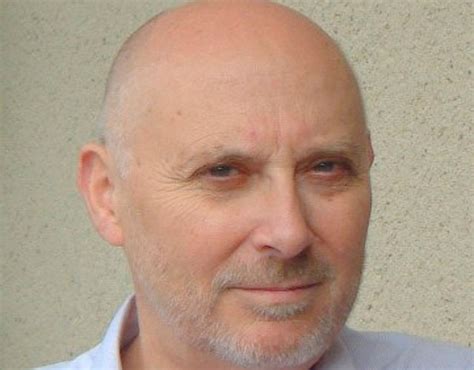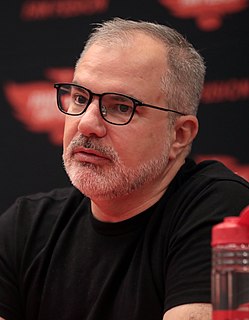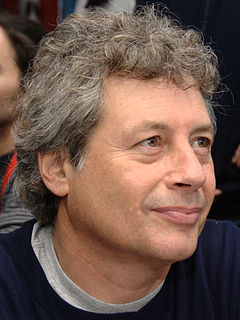A Quote by Howard Snell
There is a direct parallel in the way that we speak, with natural variations of pitch and volume that give full meaning to our words. This is what is missing in the words on the page of a book, and the notes on the score.
Related Quotes
All people in the world - who are not hermits or mutes - speak words. They speak different languages, but they speak words. They say, "How are you" or "I'm not feeling well" all over the world. These common words - these common elements that we have between us - the writer has to take some verbs and nouns and pronouns and adjectives and adverbs and arrange them in a way that sound fresh.
My breakthrough was when I began to write during my commute, at first taking notes on my Palm Pilot, and then moving on to writing full prose on the tiny QWERTY keyboard of my iPaq smartphone. I got so fast that I was averaging 400 words during the 35 minutes or so I spent on the subway each way, or 800 words round trip.
She tore a page from the book and ripped it in half. Then a chapter. Soon, there was nothing but scraps of words littered between her legs and all around her. The words. Why did they have to exist? Without them, there wouldn't be any of this. Without words, the Führer was nothing. There would be no limping prisoners, no need for consolation or wordly tricks to make us feel better. What good were the words? She said it audibly now, to the orange-lit room. "What good are the words?
Rebecca was an academic star. Her new book was on the phenomenon of word casings, a term she'd invented for words that no longer had meaning outside quotation marks. English was full of these empty words--"friend" and "real" and "story" and "change"--words that had been shucked of their meanings and reduced to husks. Some, like "identity" and "search" and "cloud," had clearly been drained of life by their Web usage. With others, the reasons were more complex; how had "American" become an ironic term? How had "democracy" come to be used in an arch, mocking way?
There's often a distressing disconnect between the good words we speak and the way we live our lives. In personal relations and politics, the mass media, the academy and organized religion, our good words tend to float away even as they leave our lips, ascending to an altitude where they neither reflect nor connect with the human condition. We long for words like love, truth, and justice to become flesh and dwell among us. But in our violent world, it's risky business to wrap our frail flesh around words like those, and we don't like the odds.
There are only five notes in the musical scale, but their variations are so many that they cannot all be heard. There are only five basic colors, but their variations are so many that they cannot all be seen. There are only five basic flavors, but their variations are so many that they cannot all be tasted. There are only two kinds of charge in battle, the unorthodox surprise attack and the orthodox direct attack, but variations of the unorthodox and the orthodox are endless. The unorthodox and the orthodox give rise to each other, like a beginningless circle-who could exhaust them?

































